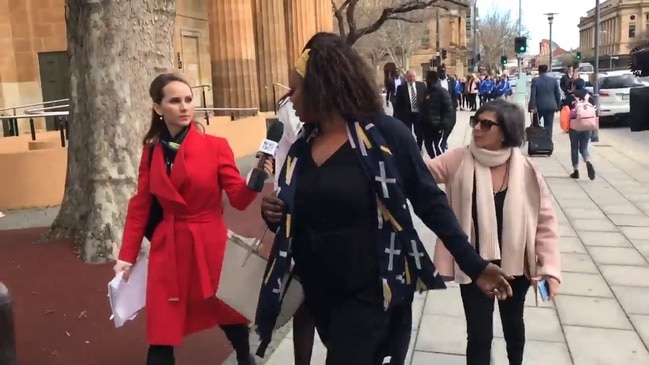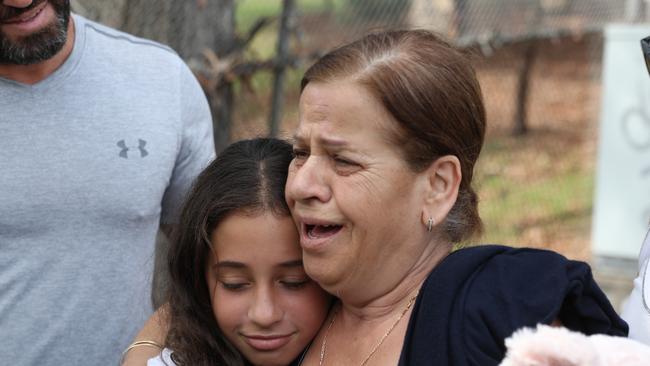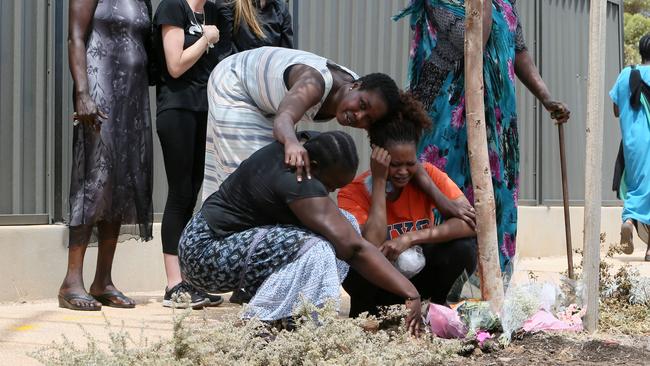David Penberthy: We need harsher penalties for dangerous drivers
Many drivers who kill people have already had their licence revoked. So if cancelling a licence won’t stop them from driving, why don’t we take them off the streets, asks David Penberthy.

Rendezview
Don't miss out on the headlines from Rendezview. Followed categories will be added to My News.
There are some stories that are so uplifting and joyful they transcend local boundaries and resonate with people in every part of the country and even across the world.
At the other end of the spectrum, some stories are so tragic and enraging they unite people in sorrow and anger, even though they have no relationship to the victims or community where the tragedy occurred.
I doubt there was a dinner table in Australia last Sunday night where people were not talking in dismay and fury about Anthony, Angelina and Sienna Abdallah and their cousin Veronique Sakr, the four kids killed by an alleged drunk-driver around 8pm last Saturday in the Sydney suburb of Oatlands.
It is hard to recall a more harrowing case than this – a case involving such beautiful young kids, the sorrow of it all made more intense by the grace and courage of the parents, paying verbal tribute to their deceased children, even stating they had forgiven the driver. These are special people.

As for the driver, well, he’ll be before the courts soon. Let’s not go down the path of giving this man even the faintest assistance should his lawyer wish to argue he cannot get a fair trial.
The situation as it stands is as follows: The driver was arrested after allegedly returning a positive roadside breath test result and recorded a blood-alcohol reading of 0.15. He has been charged with 20 offences including four counts of manslaughter, dangerous driving occasioning death and grievous bodily harm, negligent driving and drink-driving.
We will await the findings of the court.
This case came amid a couple of others this week that have raised broader ongoing questions about the extent to which public alarm about road safety and irresponsible driving is reflected by both the courts and our parliaments.
Perhaps it’s because our parliaments are packed with ex lawyers, who tend to take an arms-length approach to questions of punishments and sentences, but I would say there is a yawning chasm between the public mood on this issue and the response we find from the legislative arm of government (which writes the laws) and the judiciary as it interprets and applies those laws.
One of the best indications of this is the television program RBT, where every week without fail, people who have committed high-range and even repeated drink-driving offences face no custodial sentence, and an often brief loss of licence, even though much tougher penalties are available.

On our radio show we cross to the local police at 6.45am every morning, and at least once a week, there is a serious crime committed on the roads where the offending motorist invariably ticks every anti-social box of driving under the influence of alcohol or drugs, exceeding the speed limit, driving while disqualified, driving an unregistered car.
There were two cases in my home town this week which go to the seriousness the courts place, or are allowed to place, on prior convictions in assessing the future capacity of people to drive. These cases also raise the issue as to what we should do with people who have no qualms about driving without a licence or driving unregistered – which begs the question, if “punishing” them by cancelling a licence won’t stop them from driving, why don’t we take them off the streets and jail them for a significant period instead?
In Adelaide this week, the man who killed Bor Mabil, the 19-year-old sister of Socceroo and former Adelaide United star Awer Mabil, was sentenced to three years, one month and 25 days for causing her death by dangerous driving.
The maximum sentence Akol Agiu Akol faced for the crime was life but he could be out just after next Christmas because Judge Paul Slattery imposed a non-parole period of two years, one month and 25 days, and backdated it to January 26 last year when the fatal crash occurred.
The most galling feature of this week’s case was it emerged in court during sentencing that this was in fact the second time Akol had driven on the wrong side of the road, and head-on into another car, in a four-month time span.

In sentencing, Judge Slattery said that in September 2018, Akol smashed into another driver – causing that person’s car to catch on fire – while recording a blood-alcohol level of 0.14.
But the judge said the state’s courts had repeatedly declined to set a sentencing standard for the offence. He explained that this meant each incident had to be punished based on its own unique circumstances.
This isn’t a knock on the judge as he is merely implementing the law but the question has to be asked: why?
Why do we persist with a legal arrangement where every senseless act is treated as a new event, even for people who act that way habitually? We are allowing them to wipe the slate clean and start afresh, even though the likes of Akol have not done so themselves.
And then there’s this charmer, Sophie Brine, 25, who was breaking almost every road rule when she killed a young truck driver, Jatinder Singh Brar, also 25, in January of last year.
Brine is awaiting sentencing after pleading guilty to causing death by dangerous driving and a string of other offences, having admitted killing Mr Brar while high on drugs, speeding, using her phone and driving disqualified while trying to evade police in a stolen car. She fled the scene, driving dangerously and narrowly avoiding further accidents before she was spotted near her home and later arrested. She had methamphetamine in her system.
The sick punchline: Just days before, Brine had been handed a good behaviour bond for other traffic offences.
Good behaviour? What good behaviour?
Driving a car isn’t a human right. It’s a privilege. It’s a privilege we as a society continue to bestow on people who have no interest in doing it properly.

